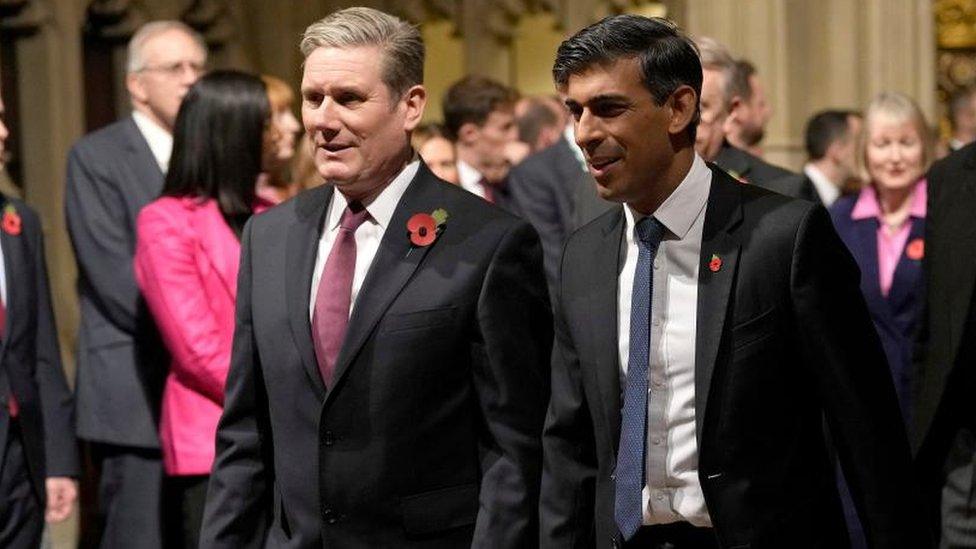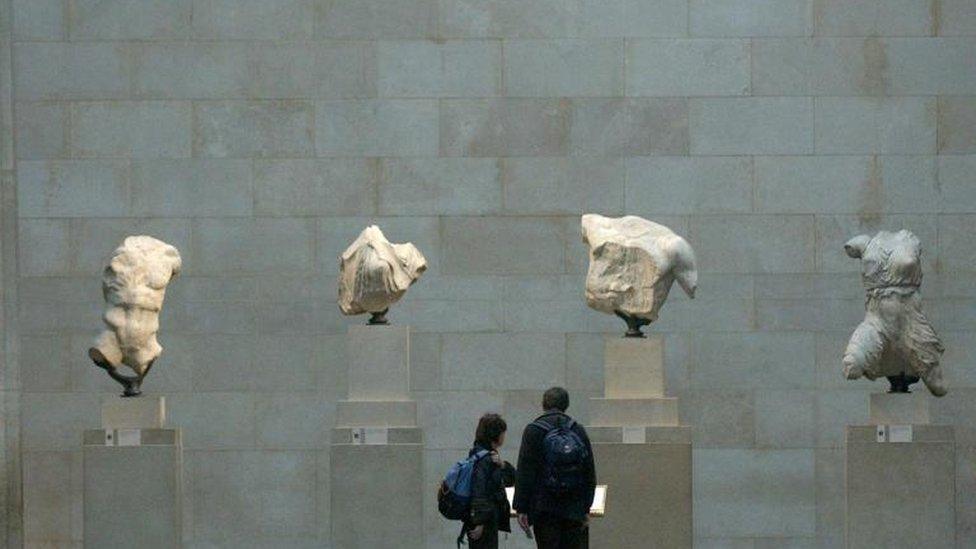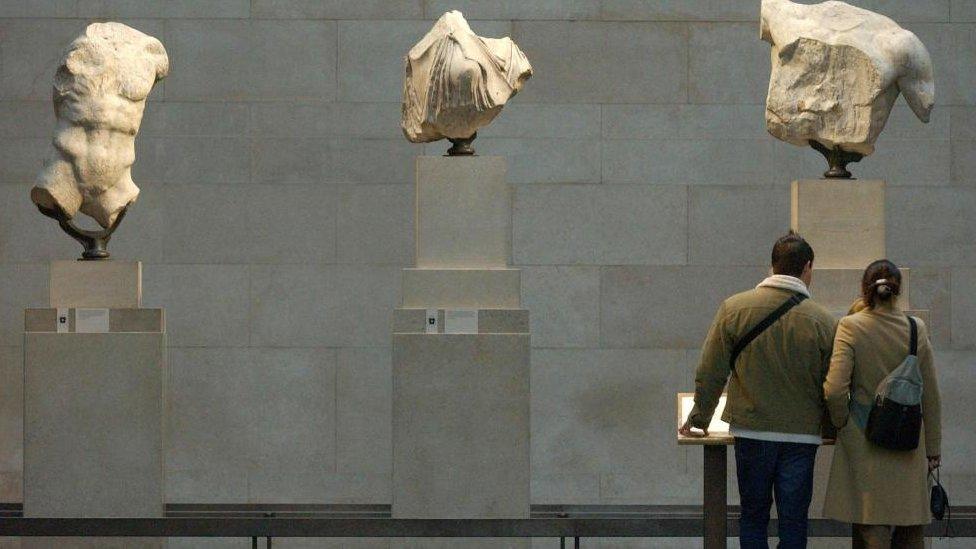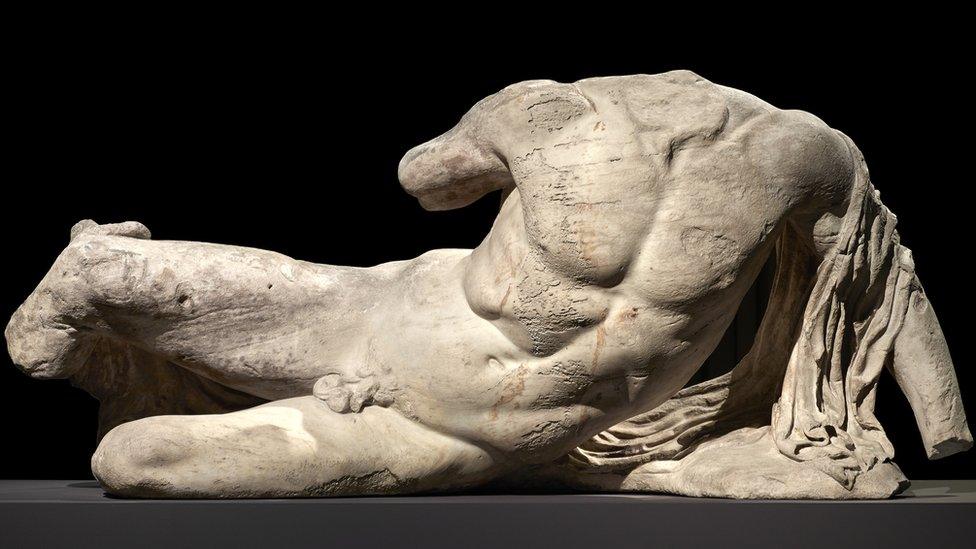Parthenon Sculptures: Row about politics as much as history
- Published

Rishi Sunak's spat with the Greek PM comes after he met with the Labour leader
You can tell a general election is in the offing when sculptures made almost 500 years before the birth of Christ become the subject of a very public diplomatic snub in November 2023.
Rishi Sunak was due to meet Greece's Prime Minister Kyriakos Mitsotakis at lunchtime for a 45-minute get together.
On the face of it, they have plenty to discuss: Israel and Gaza; the war in Ukraine; migration.
Just a few weeks ago, the then Home Secretary Suella Braverman - before being sacked - visited the Greek island of Samos, and said the UK had "a lot to learn" from the country on dealing with illegal immigration.
But enter now a row about heritage. A row about culture.
A row about what is British and belongs in Britain - and what doesn't.
Mr Mitsotakis had indicated he would use the meeting to call for the return of the Parthenon Sculptures - or Elgin Marbles - from the British Museum to Athens.
Sir Keir Starmer met the Greek prime minister on Monday.
The get-together itself is enough to annoy some in government - foreign prime ministers meeting opposition leaders rarely goes down well with their actual opposite numbers.
And with Labour consistently miles ahead in the opinion polls, meetings like this are likely to become more frequent.
Labour said Mr Sunak's decision to cancel his meeting with the Greek prime minister was "pathetic."
But at the heart of this diplomatic spat is a very domestic political row about a difference of instinct between the Conservatives and Labour on the future of the marbles.
Sir Keir would not oppose a temporary loan of the sculptures to Greece if it was agreed by the British Museum and Athens.

Such a deal does not require a change in the law and could be months away from agreement.
It is opposed by the Conservatives, who say it would be reckless. They are fearful the sculptures would never be returned.
The Greek prime minister is baffled and annoyed at being stood up.
He suggested to Greek reporters travelling with him that Mr Sunak was a coward.
"Anyone who believes in the rightness and fairness of his positions is never afraid of confrontation," he said.
Having been rejected by Mr Sunak, the Greek leader was instead offered a meeting with the Deputy Prime Minister Oliver Dowden.
But, I understand, an earlier appointment with the plane home was deemed more appealing.
Related topics
- Published28 November 2023

- Published21 July 2023
